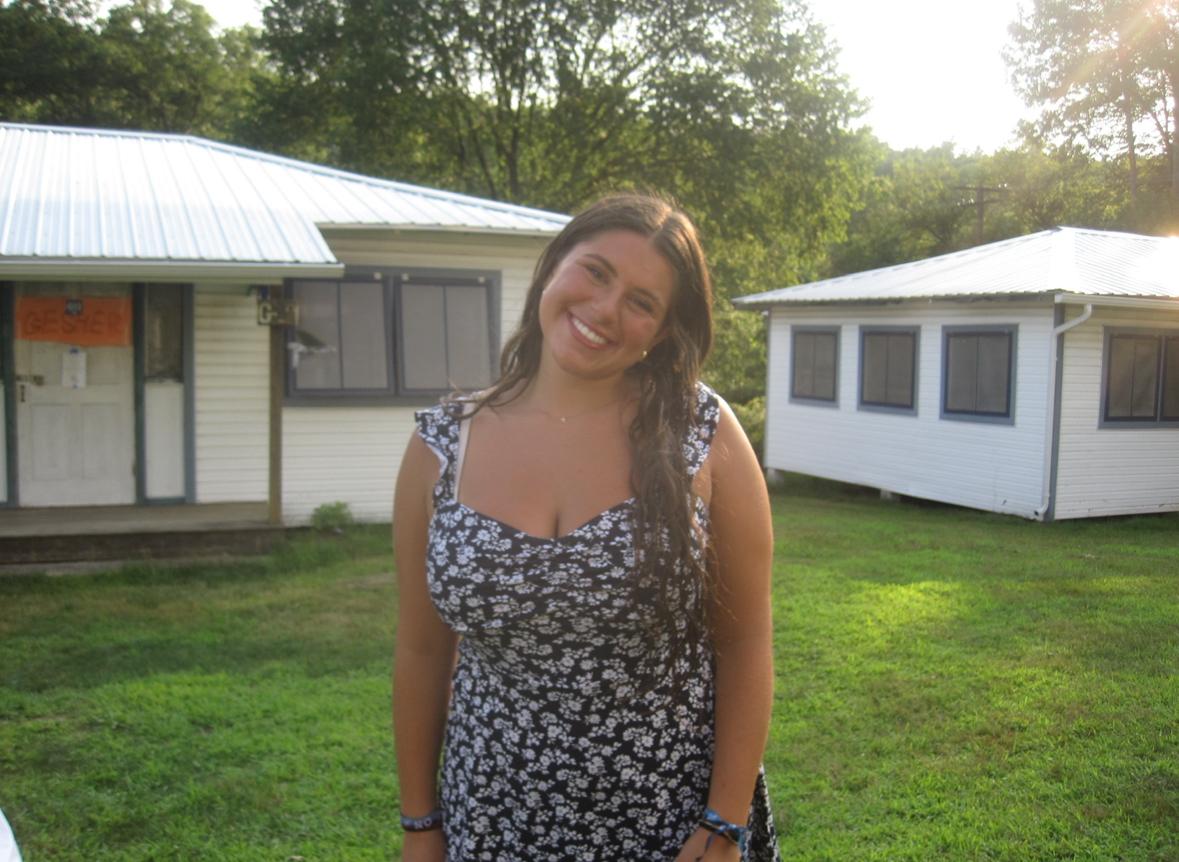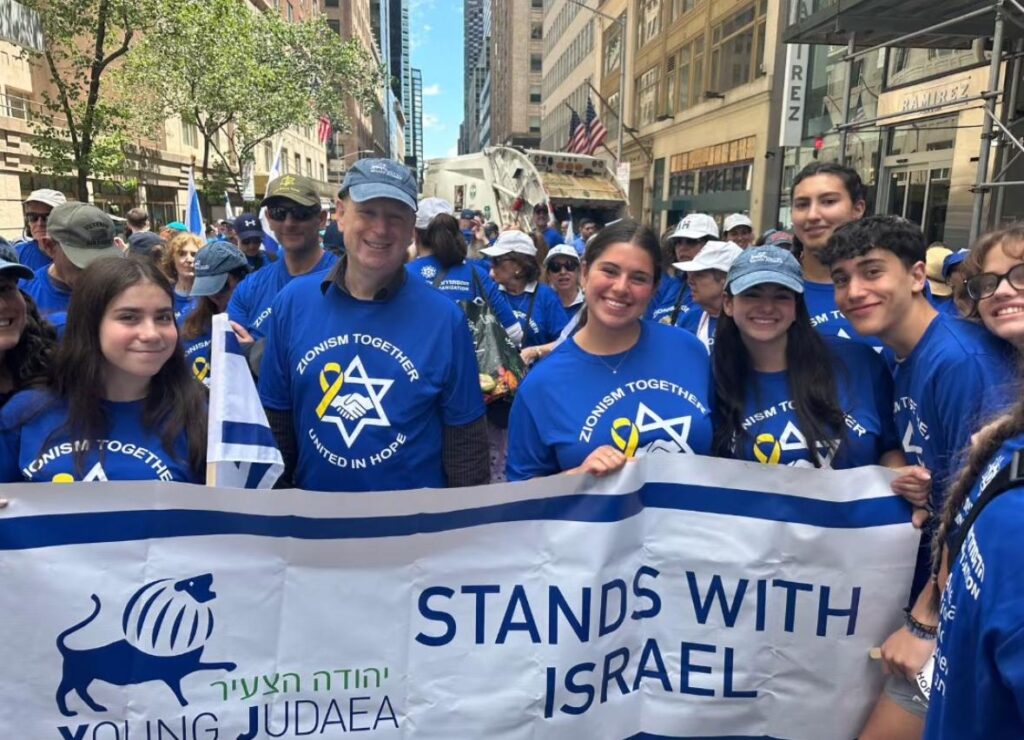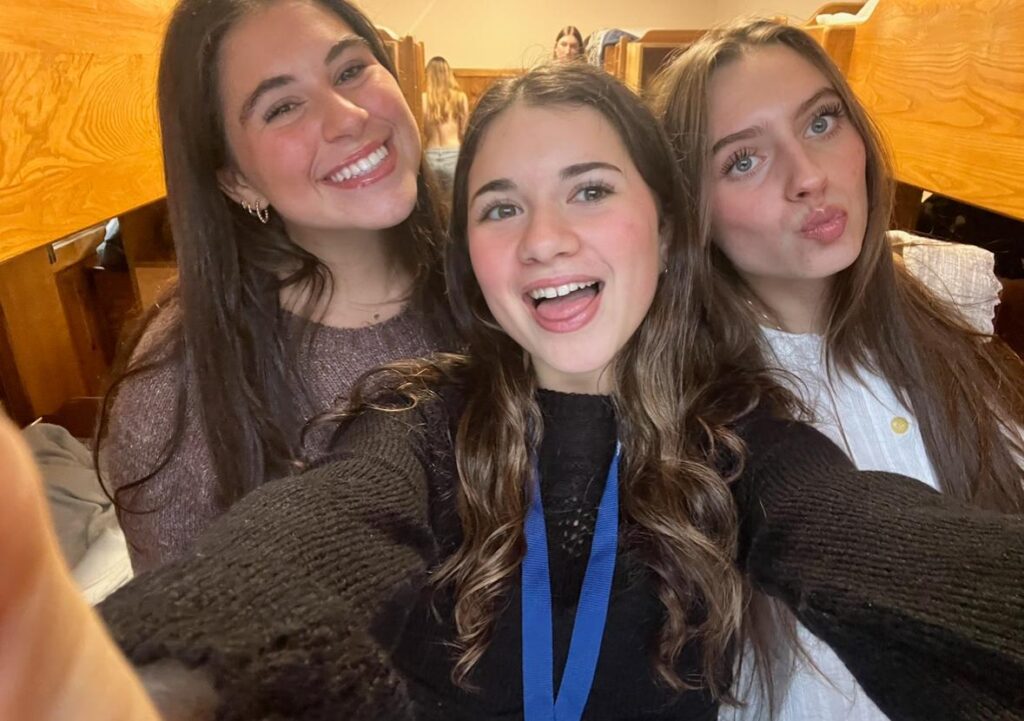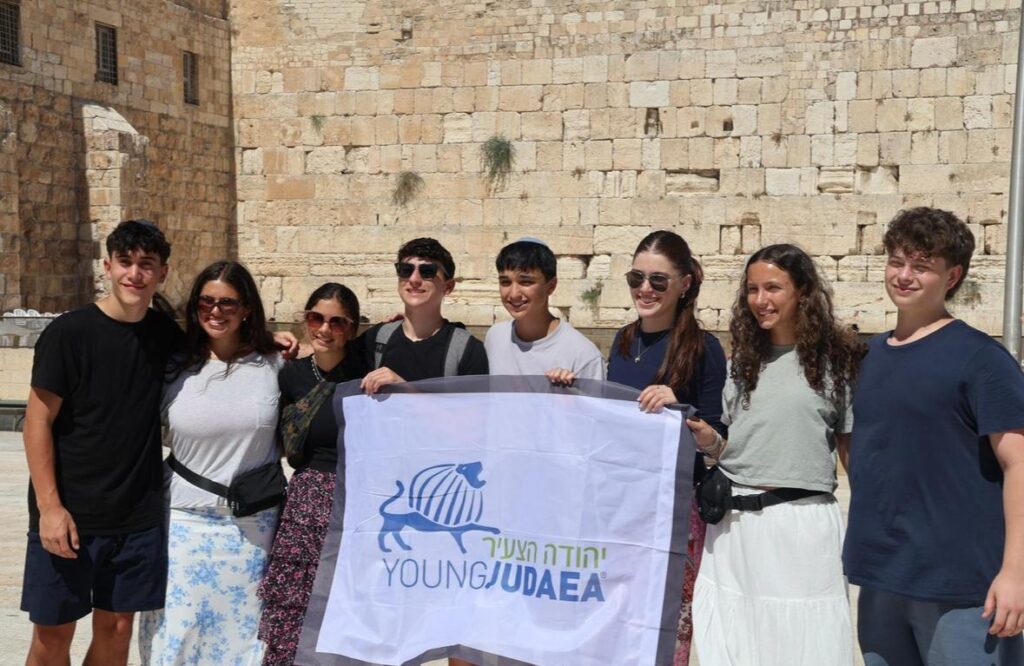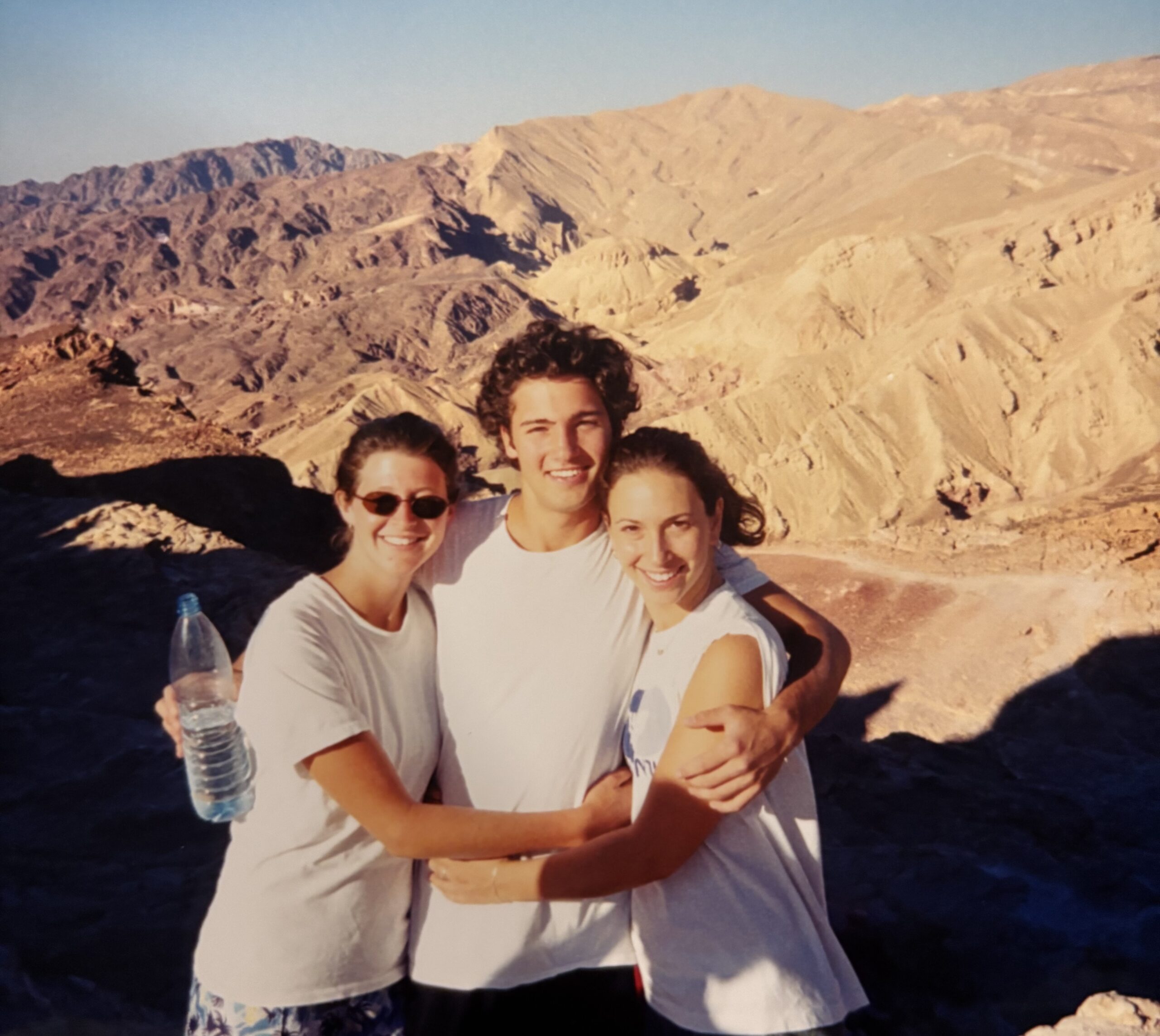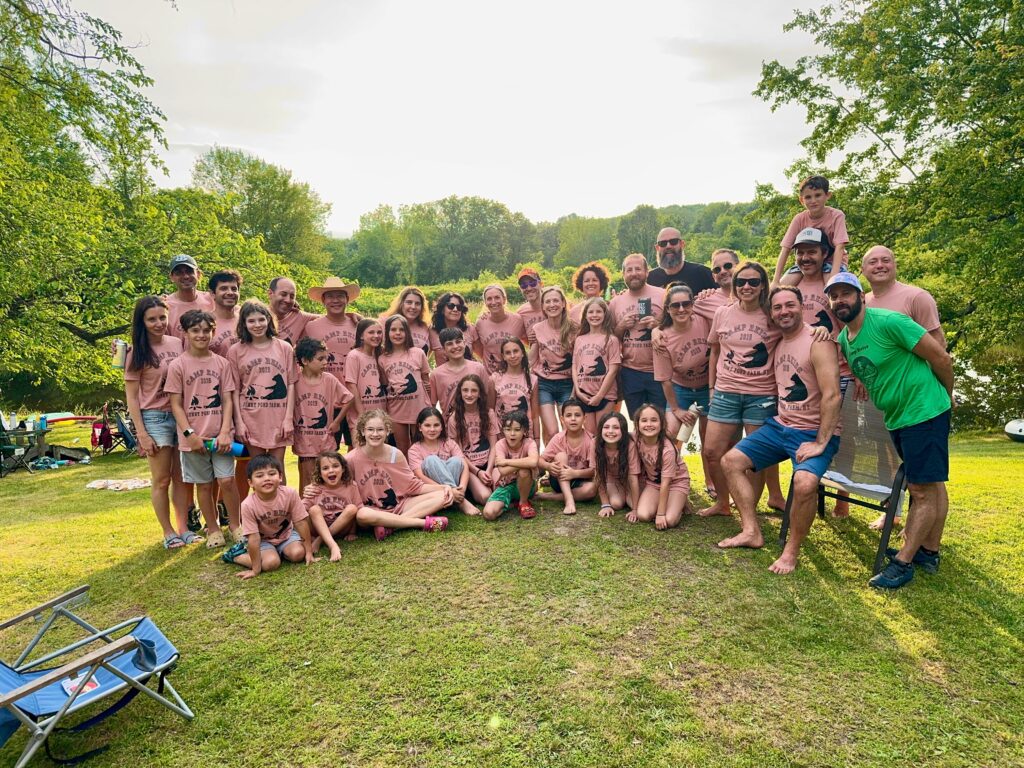
Working with youth gives me hope
At our recent teen leadership training weekend, we had an activity where we shared different metaphors for our relationship with Israel. These metaphors were based on various Zionist thought leaders throughout history.
There was an engaged conversation about one metaphor describing the relationship with Israel as a “ball and chain”: Some interpreted it as feeling responsible for representing Israel in their schools or with their friends. Others characterized it as a burden that they can never shed. Just by being Jewish, they might feel the pressure and expectation to know everything that is happening and to defend every action, statement and position that Israel, its people and its government take, regardless of their personal perspectives.
Then, like a voice from the heavens, one of the teens raised her hand. “I completely disagree,” she said. “I don’t see Israel as a burden or something that drags me down.” We asked her what metaphor she would choose instead, and without hesitating she lit up and said, “Israel is my wings. With Israel I feel like I can fly.”
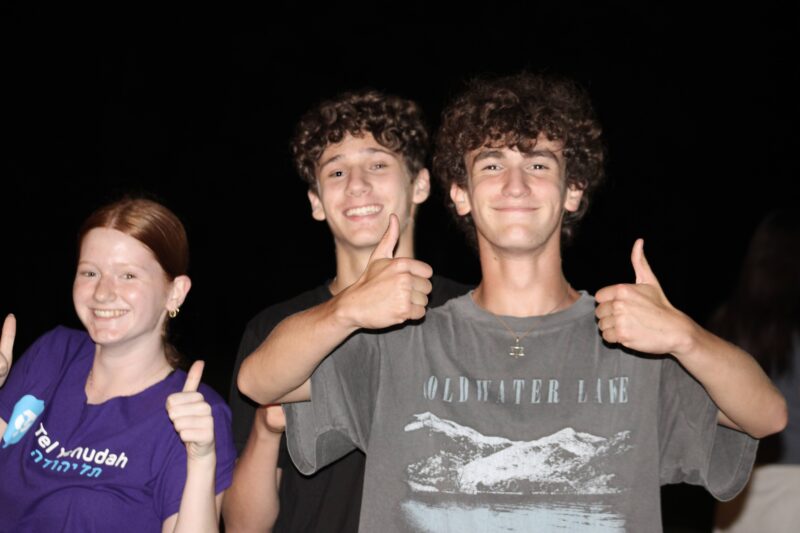
Teens at a Young Judaea teen leadership weekend in 2025.
There was an audible gasp by the older generation in the room. She literally took our breath away. Why? It wasn’t that her sentiment was universally shared, but that it radiated such hope and aspiration — something we, as Jewish professionals, hunger for. It brought oxygen into the room.
In the recent “Hope Study” by M², they found that Jewish community professionals are experiencing a crisis of hope (“M² survey finds Jewish professionals lack hope, fear internal division, but believe in their work,” eJewishPhilanthropy, Sept. 18). The experience I recount above, and countless similar interactions with our teens, serve as a constant reminder that hope is still possible.
People often ask me what it’s like to lead a Zionist youth movement. They expect me to talk about the hard parts (and yes, those moments exist), but it always surprises them that I think the greatest privilege of all is to work with today’s youth. Working with youth gives me purpose, of course, but what I love most is their raw, authentic optimism, something too many of us adults lose along the way. I joke that being around youth makes me age in reverse. They keep me young.
The “Hope Study” cites various sources of hope that mitigate the lack of hope among Jewish professionals. They include professional impact, participating in social change, belonging to a group, and tradition. I would add to this list: working with youth. Those of us who have the honor of working with youth, day in and day out, are investing in the future, but we are also reaping the benefits in the present. The study goes on to say that there are organizational differences in their findings. Those who work in day schools scored highest in having hope, which I would posit has a lot to do with the populations they are working with each day: youth.
That said, I don’t want to minimize the detractors from hope and optimism. We are working in incredibly challenging times and conditions. With crisis after crisis and constant threats, the burnout among Jewish professionals is real; as Barry Finestone said in his recent article ”The crisis we are ignoring”, “the people holding up the Jewish world are running on fumes.” And we need to look at strategies and approaches to renew, restore and build up resiliency. I would add to Barry’s list of antidotes to this burnout: regular exposure to today’s youth (although preferably not limited to your own children — that’s more complicated).
Throughout the year, while my work demands a significant amount of travel, getting out into the field to talk to our youth, to engage them in dialogue and to be constantly amazed by their freshness, directness and unbridled optimism — that is what gives me hope. If you don’t believe me, look at my socials where I document my site visits. I can’t help but feel some of that same optimism when I spend time with our youth; and as I come back to the office, I try to hold onto that feeling, those precious interactions, until my next time in the field.
So, if you are looking for an oxygen mask to revive you and restore your hope, consider working with today’s youth. Who knows — you might even live a little longer.
Adina H. Frydman is the CEO of Young Judaea Global.
As published in ejewishphilanthropy: ejewishphilanthropy.com/working-with-youth-gives-me-hope

